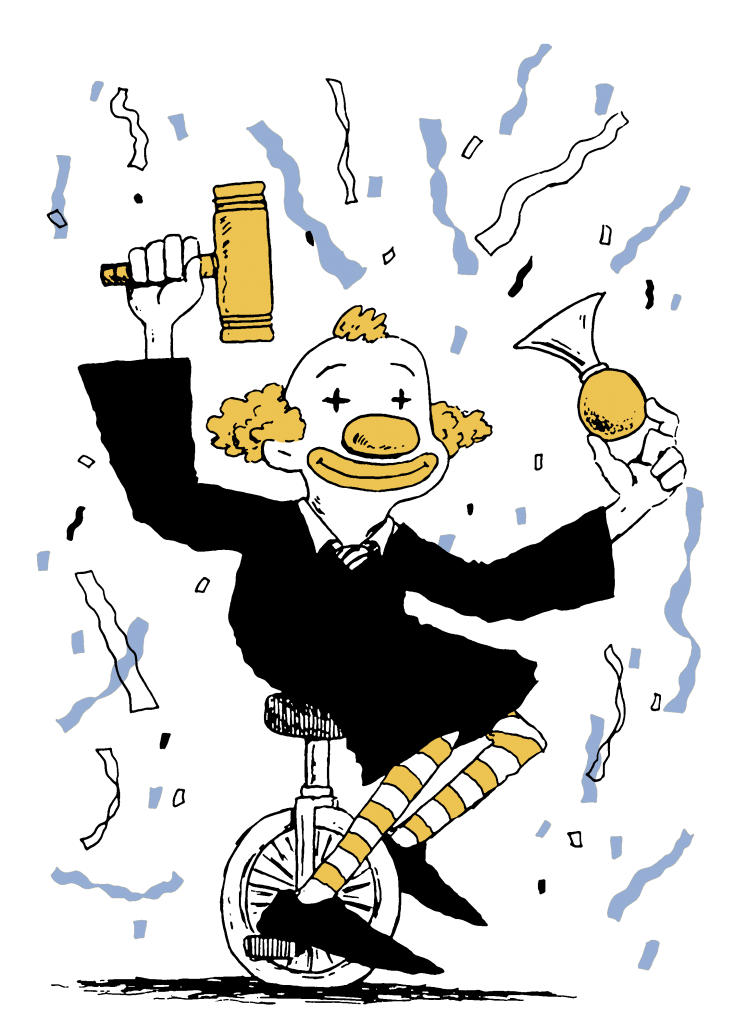
The Supreme Court’s decision in Sebelius v. Hobby Lobby removed the mandate that small for-profit companies and closely held corporations must provide contraception under Obamacare if the requirement conflicted with the owners’ religious beliefs. Depending on your persuasion, the decision may signify the upholding of an America that is living up to its principles of religious clemency, or it may remind you that Citizens United was a point of no return and you’ll have to just wait and see exactly how far this whole perversion of corporate personhood goes.
But apolitically, it marks the beginning of countless conversations that include the words hobby lobby. Like, “Ever since Hobby Lobby, lawyers have been reexamining long-closed cases on religious freedom.” Or, “I’ve told all my employees that, after Hobby Lobby, I don’t have to pay for their birth control pills.” Or, “I can’t afford birth control pills anymore and my boyfriend and I hate condoms; Hobby Lobby ruined our sex.” Or, “God has shown us that he is still on America’s side, and he showed us in Hobby Lobby.” Or, “Unwanted pregnancies have increased yearly since Hobby Lobby.” The name of the case removes a few pounds from the weight of its decision.
As early American judges created a new common law system from scratch, they invariably looked to the English jurist William Blackstone and his treatise Commentaries on the Laws of England. Blackstone was a touchstone — “according to Blackstone” was a common clause in early American law as judges sought guidance from a man with a steely, monolithic name that just sounded powerful, so solemnly authoritative that I can only think that BlackRock, the world’s most asset-rich company, passed up on the name only because Blackstone was already claimed by a hedge fund. Until the US developed its own foundation of case law, Blackstone acted like a Greek god of colonial jurisprudence, consulted almost singularly, until ultimately his citations petered out and our own precedents took hold (although he is still sometimes referred to in long Supreme Court decisions that track a legal history right down to its English genesis).
When our common law system found its own, it didn’t read like the stolid Blackstone, even if it decidedly remained Blackstone’s philosophical descendent. The nearly universal first year law school curriculum, far from a phlegmatic meditation in ethics, is a crash course in the slapstick and absurd that form the columns of our civil system. A drunken farmer signs over the deed to his property and then wakes up to regret it the next day. A man grows a hairy hand. A man nearly falls off a train and is helped back on, in the course of which his box of fireworks falls under the train, exploding inside the station. A man sends in $700,000 to redeem 7,000,000 Pepsi points to purchase the fighter jet he saw in the commercial. A woman spends hundreds of thousands of dollars on dancing lessons only to learn she is a terrible dancer, then sues the dance company for fraud.
Judicial opinions belong to their own literary genre, and one feature of this genre is that the recitation of facts in the beginning of a case reads with an emotional detachment that’s the opposite of dehumanizing, rather producing some of the most humanistic work in American letters, intentionally or not. A good judge brings to bear the immense but subtle power of making every party in a case seem ultimately blameless, not legally or psychologically, but almost spiritually, like billiards balls innocuously bouncing off life’s cushions, sometimes happening to collide with one another. Even the most malicious person, written in the elegantly simple language of fact, never seems like he really wants to be bad. Everyone seems like a child — not childish, but childlike, the way every Kurt Vonnegut character feels childlike, people whose worst sins are human confusion but who remain souls just trying to do the right thing.
I’ve seen critics occasionally make passes at pegging the most “American” writer. Although the inquisition into American-ness is often too weaponized a line of questioning to engage in, if the questions are ever opened, Vonnegut should be allowed enough byes to the final round. His writing was as American as the law and his intellect inseparable from words like “willy-nilly” and “higgledy-piggledy” — the folksiness of American English that made atrocity taste a little bit like cotton candy, in the best way.
The facts of Hobby Lobby may not be funny — the decision makes various citizens irate — but the name itself is a continuation of an American tradition of levity. It’s like the small town in New Mexico so aware of its own desolate purposelessness that it renamed itself Truth or Consequences, after the 1960s Bob Barker-hosted game show did a taping there. Or the fact that people still refer to mass shootouts in city streets “like it was the O.K. Corral.” Everything becomes disarmingly innocuous, spoken by a customer talking to the store clerk while he rings up her vegetables and she just rambles, willy-nilly, not really thinking about what she’s saying, but meaning well.
Illustration by Steve Teare
This post may contain affiliate links.








